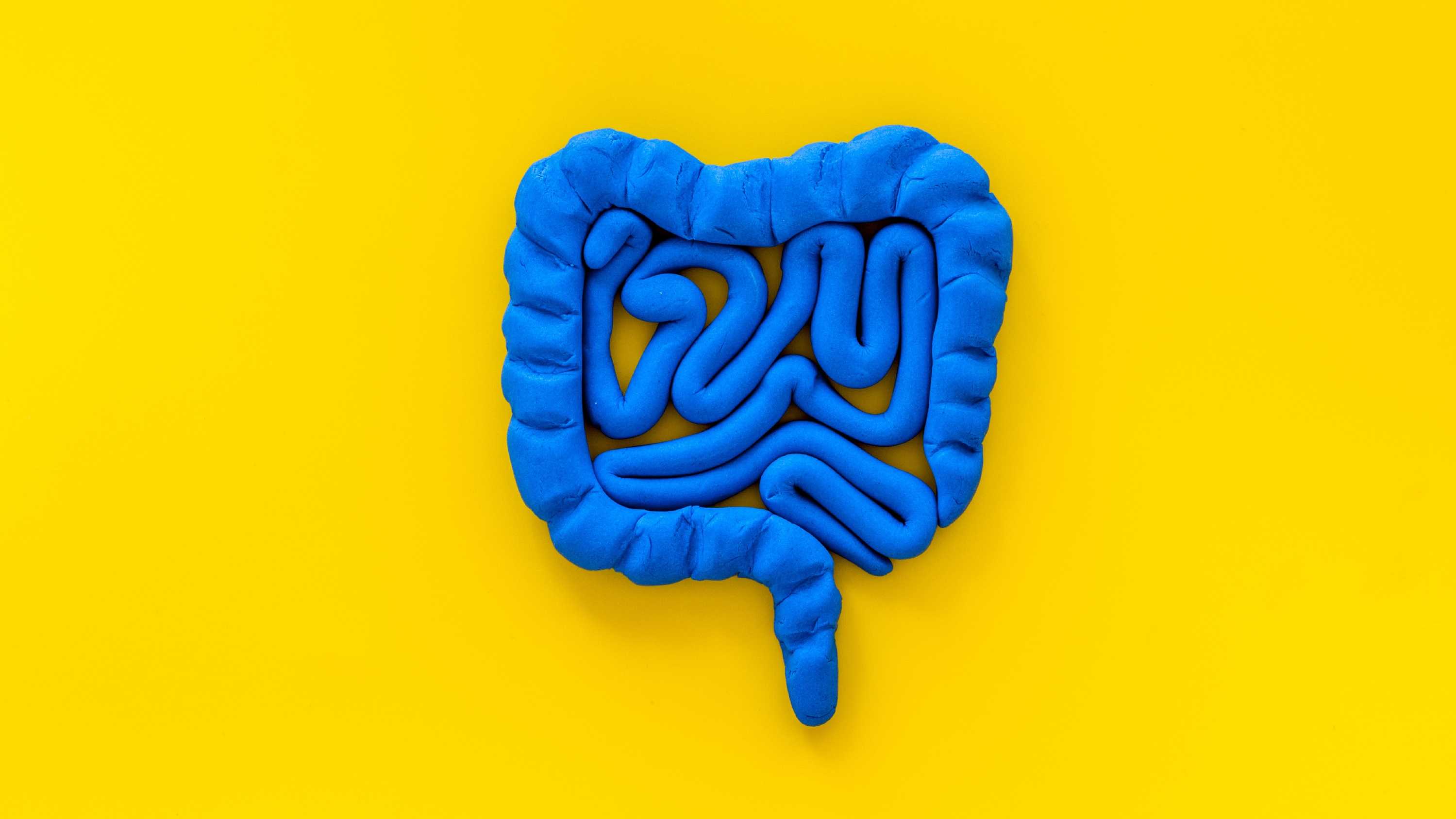From Microbes to Mood: How the Gut-Brain Axis Shapes Your Health
The world of work has changed forever. To improve connections within organisations, understanding how we function as human beings has become paramount. This includes learning how to manage our moods to improve our feelings and behaviour.
The i4 Neuroleader™ Certification is aimed at anyone (not just coaches) interested in personal development, the latest in brain and body health, coaching skills development and the application of brain-based leadership.
Our programs provide a fantastic introduction to the gut-brain axis and teach you the science behind how our ‘second brain’ controls our moods, emotions and overall health. The gut-brain axis has gained interest lately as science has begun to unravel the intricate relationship between the digestive and nervous systems.
Trillions of hitchhikers, better known as the gut microbiota, make up who we are. These microbes play a huge role in the gut-brain link, and they can influence our actions and emotions. To further explore this relationship, I was excited to sit down with Gus Rickard and delve into the mysterious world of gut health.
A Journey of Discovery Brought About by Necessity
In my conversation with Gus, a holistic health practitioner, we discussed his participation in the ‘Neurobiology of Coaching’ modules as part of our program and how important gut health is for overall wellbeing. Gus first became interested in studying gut health in his early 20s while working as a personal trainer.
It started innocently enough. He injured his back doing a deadlift in the gym. He followed all the usual protocols for a disc injury. He rested and saw an assortment of medical professionals, including a physiotherapist, a chiropractor and an osteopath. But nothing helped. He was still in a great deal of pain.
Looking for Answers in All the Wrong Places
Gus became depressed and anxious because of the helplessness he felt. Eventually, he couldn’t sleep and experienced insomnia. Again, he turned to medicine for answers, but he came up short. Finally, he reached out to Paul Check, who he had trained with early in his career.
Gus and Paul were able to work together, and Paul was able to show Gus the bigger picture of what was going on with his body and mind. Many issues had not been adequately resolved over the years, and Gus finally realised his gut health was a significant player in his ongoing saga.
Once he focused on healing his gut, other conditions also improved. Diagnosed in childhood with ADHD, he found that many of those symptoms also cleared. The brain fog was gone, and he was able to be calm and concentrate for extended periods of time.
He experienced both ends of the spectrum--an unhealthy gut and then back to a healthy gut. The difference was so life-changing that he was inspired to share his journey and help others suffering from poor gut health.
Depression, Anxiety and Insomnia--Finding Relief at Last
As a coach, three things people complain the most about are depression, anxiety and insomnia. And for many, the link between conditions of the brain such as these and gut health is quite unclear. However, neuroscience has shown a clear correlation between the brain and the gut, and research continues to broaden our understanding of this connection.
The gut and the brain are connected through the gut-brain axis, a bidirectional communication pathway involving neural, hormonal and immune signals.[1] The gut contains its own network of neurons and the gut microbiota, which produces molecules influencing brain function. This communication regulates mood and mental health and may have implications for neurodegenerative diseases.[2] Some of the findings include:
- The gut contains a complex network of neurons known as the enteric nervous system (ENS), often called the ‘second brain’. The ENS can operate independently of the central nervous system and has a direct influence on gut functions such as digestion, absorption and motility.
- The gut microbiota, which refers to the trillions of microorganisms residing in the gastrointestinal tract, plays a crucial role in gut-brain communication. The gut microbiota produces various metabolites, neurotransmitters and immune molecules that can influence brain function and behaviour.
- The gut-brain axis is involved in the regulation of mood and emotions. Research suggests that alterations in the gut microbiota composition and function can contribute to mental health disorders such as anxiety and depression.
- Emerging evidence indicates that the gut-brain axis may also play a role in neurodegenerative diseases such as Alzheimer's disease and Parkinson’s disease. Dysfunctions in gut microbial composition and gut barrier integrity have been observed in these conditions, suggesting a potential link between the gut and the pathogenesis of these diseases.
How Can We Promote Healing?
Healing the gut can have a significant impact on alleviating symptoms of anxiety and depression. The gut microbiota plays a crucial role in producing neurotransmitters such as serotonin, dopamine and gamma-aminobutyric acid (GABA), key mood and emotion regulators.
Research suggests that an imbalance in gut microbiota, known as dysbiosis, can disrupt the production and regulation of these neurotransmitters.[3] By restoring a healthy balance of gut bacteria through interventions such as probiotics or dietary changes, it is possible to improve neurotransmitter production and subsequently relieve symptoms associated with mood disorders.
The gut-brain axis also plays a vital role in regulating stress responses. Chronic stress can negatively impact gut health, leading to increased inflammation, altered gut permeability and dysregulation of the gut microbiota.
In turn, these gut disturbances can send signals to the brain that further contribute to the development or exacerbation of anxiety and depression. By focusing on healing the gut, the bidirectional communication between the gut and the brain can be positively influenced, improving stress regulation and mental wellbeing.
“Your gut is not Las Vegas. What happens in the gut does not stay in the gut.”
Peter Kozlowski, MD
Sleeping the Bad Gut Away
Getting enough sleep is crucial for maintaining a healthy gut. Sleep deprivation has been shown to disrupt the balance of gut microbiota. Studies have found that sleep loss can lead to changes in the composition and diversity of the gut microbiota, favouring the growth of harmful bacteria and reducing the abundance of the beneficial ones. Fortunately, most of the research indicated these effects are reversible.[4]
These alterations in the gut microbiota have been linked to various gastrointestinal diseases, such as inflammatory bowel disease and irritable bowel syndrome.[5] We cannot emphasise enough how important sleep is to promoting a diverse and balanced gut.
Sleep deprivation has been associated with increased intestinal permeability, commonly called ‘leaky gut’. When we don’t get enough sleep, the intestinal barrier becomes compromised, allowing bacteria, toxins and other harmful substances to leak into the bloodstream.
This leakage can trigger an inflammatory response and contribute to chronic inflammation in the gut, which has been implicated in conditions such as ulcerative colitis and Crohn’s disease. Enough sleep helps maintain the integrity of the intestinal barrier and reduces the risk of inflammation.
Getting enough sleep is one way to promote healing in the gut, but many other factors are also at play. How do you wind down for sleep? Do you turn off screens? What do you eat? How stressed are you? What else are you worrying about (money, family, etc)? All of these will contribute to gut health and then, in turn, affect how we feel and react and behave.
The Science is Evolving, and Neurocoaches Must Keep Up
Science waits for no coach, but a neurocoach can better digest (pun intended!) information and make it useful and relatable to clients. It is easy to be overwhelmed with new research and guidelines, so a neurocoach could act like a bridge, bringing information and advice to the other side.
In the program, Gus will teach participants about holistic health and how the gut is involved in the body-mind connection. You will learn how to manage yourself and your gut health and use that information to help your clients overcome roadblocks and achieve success and self-improvement.
Unfortunately, many people in the general population are not very knowledgeable about the importance of gut health. When the gut is unhealthy, the entire body suffers, and when the gut is healthy, the body and mind can thrive. Gut health is not only a factor regarding mental health but our overall health.
Because of the advances in science and neuroscience, we can now sequence the DNA of what lives in our microbiome, helping us understand these microscopic organisms. We can use MRI machines to watch the brain in real-time, allowing us to monitor how the gut affects the brain.
When we take a step back to fully absorb the most current research, we see that there is not just a link between the brain and gut but also a lung, liver, heart and brain connection. When we look at all these systems together, we can start to heal the gut and achieve better outcomes for individuals.
The About my Brain Institute is proud to be working with Gus Rickard in teaching people about how they can use this knowledge to better themselves and their clients.
Citations:
- Appleton J. The Gut-Brain Axis: Influence of Microbiota on Mood and Mental Health. Integr Med . 2018;17: 28–32.
- Schrager S, Sadowski E. Getting More Done: Strategies to Increase Scholarly Productivity. J Grad Med Educ. 2016;8: 10–13.
- Carco C, Young W, Gearry RB, Talley NJ, McNabb WC, Roy NC. Increasing Evidence That Irritable Bowel Syndrome and Functional Gastrointestinal Disorders Have a Microbial Pathogenesis. Front Cell Infect Microbiol. 2020;10: 468.
- Wang Z, Yuan K, Ji Y-B, Li S-X, Shi L, Wang Z, et al. Alterations of the Gut Microbiota in Response to Total Sleep Deprivation and Recovery Sleep in Rats. Nat Sci Sleep. 2022;14: 121–133
- Menees S, Chey W. The gut microbiome and irritable bowel syndrome. F1000Res. 2018;7. doi:10.12688/f1000research.14592.1
- i4 Neuroleader (353)
- Leadership & Culture (336)
- Brain Health & Wellbeing (206)
- Innovation (97)
- Performance (85)
- Our News (79)
- Collaboration (68)
- Agility (53)
- Practitioner Stories (44)
- In The Press (36)
- Make Me A Leader (33)
- Balance (31)
- Integration (30)
- Imagination (29)
- Awareness (23)
- Brain-Friendly Channel (22)
- Brain-Friendly Leadership (22)
- Communication (22)
- Curiosity (21)
- Inspiration (19)
- Intuition (19)
- Attitude (17)
- Courage (16)
- Adaptability (14)
- Case Studies (14)
- Drive (14)
- Generosity (13)
- Ethics (9)
- Mental Readiness (9)
- Influence (8)
- Retreat (8)
- Brain-Friendly Leadership (1)
- Oracle Cards (1)
- 1 November 2025 (2)
- 1 September 2025 (3)
- 1 August 2025 (5)
- 1 July 2025 (5)
- 1 June 2025 (2)
- 1 April 2025 (1)
- 1 March 2025 (8)
- 1 February 2025 (3)
- 1 September 2024 (4)
- 1 July 2024 (2)
- 1 June 2024 (6)
- 1 May 2024 (2)
- 1 April 2024 (3)
- 1 March 2024 (1)
- 1 November 2023 (1)
- 1 August 2023 (1)
- 1 July 2023 (2)
- 1 June 2023 (2)
- 1 May 2023 (4)
- 1 April 2023 (2)
- 1 March 2023 (7)
- 1 February 2023 (4)
- 1 January 2023 (1)
- 1 September 2022 (1)
- 1 May 2022 (3)
- 1 April 2022 (1)
- 1 March 2022 (5)
- 1 February 2022 (4)
- 1 January 2022 (4)
- 1 December 2021 (2)
- 1 November 2021 (4)
- 1 October 2021 (3)
- 1 September 2021 (6)
- 1 August 2021 (1)
- 1 April 2021 (1)
- 1 December 2020 (2)
- 1 November 2020 (1)
- 1 September 2020 (1)
- 1 August 2020 (1)
- 1 July 2020 (3)
- 1 June 2020 (4)
- 1 May 2020 (3)
- 1 April 2020 (4)
- 1 March 2020 (6)
- 1 February 2020 (4)
- 1 January 2020 (2)
- 1 December 2019 (3)
- 1 November 2019 (3)
- 1 October 2019 (5)
- 1 September 2019 (4)
- 1 August 2019 (4)
- 1 July 2019 (4)
- 1 June 2019 (5)
- 1 May 2019 (9)
- 1 April 2019 (9)
- 1 March 2019 (8)
- 1 February 2019 (7)
- 1 January 2019 (8)
- 1 December 2018 (5)
- 1 November 2018 (10)
- 1 October 2018 (16)
- 1 September 2018 (9)
- 1 August 2018 (10)
- 1 July 2018 (9)
- 1 June 2018 (8)
- 1 May 2018 (9)
- 1 April 2018 (9)
- 1 March 2018 (9)
- 1 February 2018 (8)
- 1 January 2018 (8)
- 1 December 2017 (6)
- 1 November 2017 (9)
- 1 October 2017 (9)
- 1 September 2017 (8)
- 1 August 2017 (10)
- 1 July 2017 (8)
- 1 June 2017 (8)
- 1 May 2017 (9)
- 1 April 2017 (8)
- 1 March 2017 (6)
- 1 January 2017 (3)
- 1 December 2016 (4)
- 1 November 2016 (5)
- 1 October 2016 (4)
- 1 September 2016 (2)
- 1 August 2016 (4)
- 1 July 2016 (4)
- 1 June 2016 (2)
- 1 May 2016 (3)
- 1 April 2016 (3)
- 1 March 2016 (7)
- 1 February 2016 (2)
- 1 January 2016 (5)
- 1 December 2015 (2)
- 1 November 2015 (2)
- 1 October 2015 (4)
- 1 September 2015 (2)
- 1 August 2015 (2)
- 1 July 2015 (1)
- 1 June 2015 (3)
- 1 May 2015 (4)
- 1 April 2015 (5)
- 1 March 2015 (3)
- 1 February 2015 (3)
- 1 January 2015 (3)
- 1 December 2014 (3)
- 1 November 2014 (3)
- 1 October 2014 (3)
- 1 September 2014 (5)
- 1 August 2014 (4)
- 1 July 2014 (5)
- 1 June 2014 (3)
- 1 May 2014 (1)
- 1 March 2014 (1)
- 1 December 2013 (2)
- 1 November 2013 (1)
- 1 July 2013 (1)
- 1 June 2013 (1)
- 1 May 2013 (3)
- 1 April 2013 (1)
- 1 March 2013 (2)
- 1 February 2013 (1)
- 1 January 2013 (2)
- 1 November 2012 (1)
- 1 October 2012 (1)
- 1 September 2012 (1)
- 1 August 2012 (2)
- 1 July 2012 (1)
- 1 June 2012 (1)
- 1 May 2012 (2)
- 1 April 2012 (1)
- 1 February 2012 (1)
- 1 January 2012 (1)
- 1 November 2011 (1)
- 1 October 2011 (3)
- 1 September 2011 (2)
- 1 July 2011 (1)
- 1 June 2011 (1)
- 1 May 2011 (1)
- 1 April 2011 (1)
- 1 March 2011 (1)
- 1 February 2011 (2)
- 1 January 2011 (4)
- 1 December 2010 (4)
- 1 November 2010 (3)
- 1 October 2010 (5)
- 1 September 2010 (4)
- 1 August 2010 (4)
- 1 July 2010 (3)
- 1 June 2010 (4)
- 1 May 2010 (7)
- 1 April 2010 (5)
Subscribe by email
You May Also Like
These Related Stories

Is Your Gut Holding You Back?

GQ In Leadership




No Comments Yet
Let us know what you think